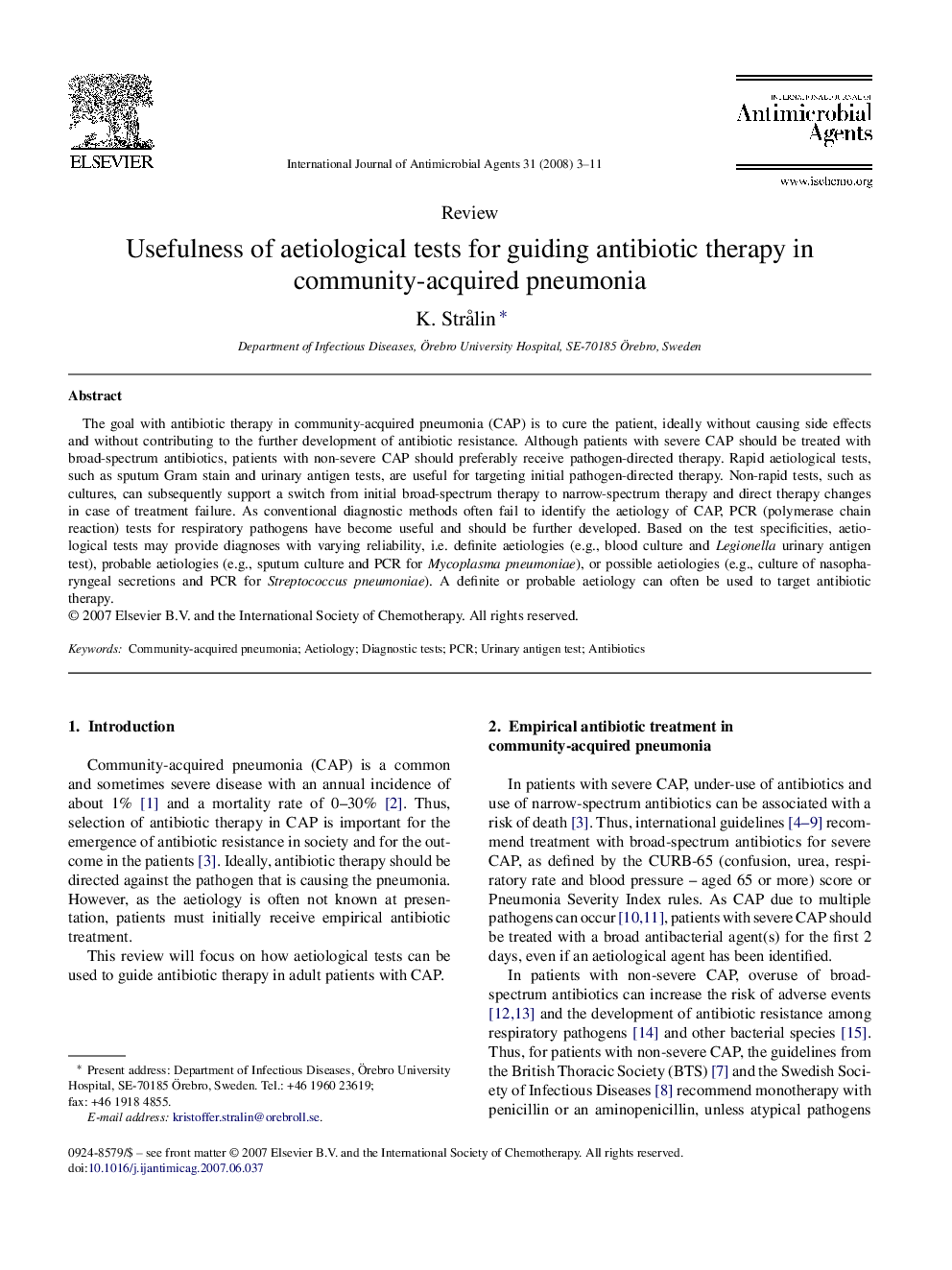| کد مقاله | کد نشریه | سال انتشار | مقاله انگلیسی | نسخه تمام متن |
|---|---|---|---|---|
| 3360615 | 1591875 | 2008 | 9 صفحه PDF | دانلود رایگان |

The goal with antibiotic therapy in community-acquired pneumonia (CAP) is to cure the patient, ideally without causing side effects and without contributing to the further development of antibiotic resistance. Although patients with severe CAP should be treated with broad-spectrum antibiotics, patients with non-severe CAP should preferably receive pathogen-directed therapy. Rapid aetiological tests, such as sputum Gram stain and urinary antigen tests, are useful for targeting initial pathogen-directed therapy. Non-rapid tests, such as cultures, can subsequently support a switch from initial broad-spectrum therapy to narrow-spectrum therapy and direct therapy changes in case of treatment failure. As conventional diagnostic methods often fail to identify the aetiology of CAP, PCR (polymerase chain reaction) tests for respiratory pathogens have become useful and should be further developed. Based on the test specificities, aetiological tests may provide diagnoses with varying reliability, i.e. definite aetiologies (e.g., blood culture and Legionella urinary antigen test), probable aetiologies (e.g., sputum culture and PCR for Mycoplasma pneumoniae), or possible aetiologies (e.g., culture of nasopharyngeal secretions and PCR for Streptococcus pneumoniae). A definite or probable aetiology can often be used to target antibiotic therapy.
Journal: International Journal of Antimicrobial Agents - Volume 31, Issue 1, January 2008, Pages 3–11